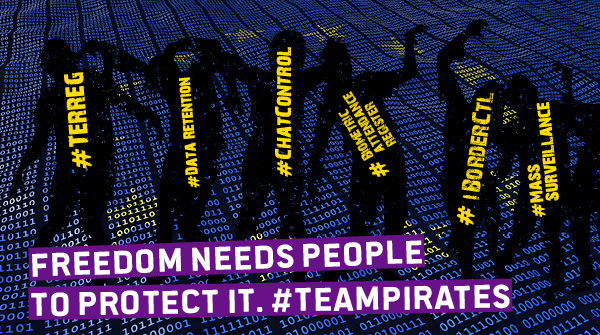Survey on the Digital Services Act: EU citizens want the right to use digital services anonymously
Internet users should be given the right to use digital services anonymously, i.e. without having their personal data collected. According to a representative opinion poll conducted by YouGov among 10,064 EU citizens in December 2021 64% of respondents are in favour of such a right (with 21% opposed).
Next week, Members of the European Parliament will vote on their final position on the Digital Services Act. At the request of the Civil Liberties Committee (LIBE), an amendment on introducing a right to use digital services anonymously will be voted.
For the opinion poll, citizens from the Netherlands, Germany, Italy, France, Austria, the Czech Republic, Spain, Sweden and Belgium were asked whether they think that internet users should have the right to use digital services anonymously (i.e. as much as possible without their personal data being collected) or not.
The poll was commissioned by Pirate Party MEP Dr Patrick Breyer (Pirate Party), who participates in the Digital Services Act negotiations as rapporteur for the Committee on Civil Liberties, Justice and Home Affairs (LIBE). The research was financed by his group, the Greens/European Free Alliance. Commenting on the survey result, Breyer explains:
“The European Parliament must respond to the constant data scandals and data crime online to better protect our citizens. Only uncollected data is secure data! This was recently demonstrated by the leak of unnecessarily collected mobile phone numbers of 500 million Facebook users. A right to anonymity also protects vulnerable groups from discrimination online. Next week, the European Parliament needs to seize the opportunity to meet citizens’ demand for protecting their digital privacy better.”
Background:
The Digital Services Act (DSA) provides Europe with the chance to set global standards for digital rights.
In recent years, numerous data breaches have seen users’ personal data, such as home numbers and location data, being leaked to criminals. In 2021, for example, the private phone numbers of 533 million Meta/Facebook users were published on a hacker forum. Meta/Facebook had collected these numbers unnecessarily. The data facilitates crimes and exposes users to risks such as SIM swapping, phishing attacks and stalking.
Such data scandals could be avoided if user data were not collected unnecessarily. The LIBE Committee wants to introduce in the Digital Services Act the right to use and pay for digital services anonymously wherever reasonably possible. The current survey results now show broad support for this demand.

